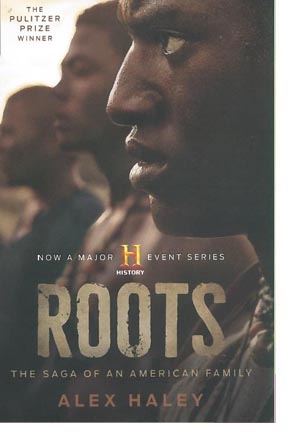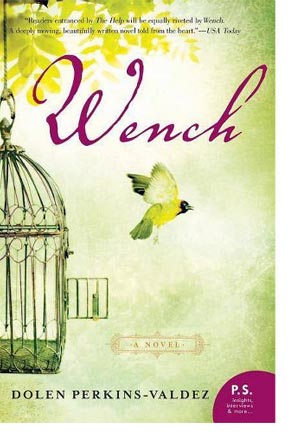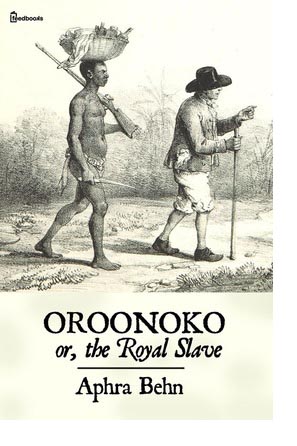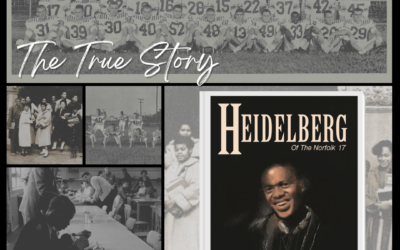7 Influential Slave Narratives
(and that squeamish feeling that comes with reading them)

7 Influential Slave Narratives
(and that squeamish feeling that comes with reading them)
By Brian C. Johnson, author of Send Judah First
For the longest time, I have been fascinated by slave narratives. Honestly, as a black man, just saying that makes me squeamish.
Some of the titles I list below were formidable in my own development— compelling and impacting, but also walls to be scaled as I endeavored to tell Judah’s story. Some were intimidating because of their literary genius and evocative story lines, making me question if I could effectively write a fictional slave narrative.
In Send Judah First, I wanted to take the best of these books and tell a different story—one with complex characters and relationships and one that speaks to our contemporary culture. What intrigues me most about these stories and what I wrote into Judah, was the humanization of the characters. “Slave” was not their identity; it was the American peculiar institution that was foisted upon them.
 In the 1970s it was rare to see a black person on television. My mom talked for weeks about how Roots was going to be on TV. I was electrified. As the first episode started, I ran down the street announcing “Roots is on! Roots is on!” I felt like a little Paul Revere. The series took on a life of its own. It truly became a watershed moment. The book stands alone as being one of the most paramount slave narratives written.
In the 1970s it was rare to see a black person on television. My mom talked for weeks about how Roots was going to be on TV. I was electrified. As the first episode started, I ran down the street announcing “Roots is on! Roots is on!” I felt like a little Paul Revere. The series took on a life of its own. It truly became a watershed moment. The book stands alone as being one of the most paramount slave narratives written.
In college, I was introduced to Incidents in the Life of a Slave Girl, by Harriet Jacobs who chronicled her own journey through slavery and tried to find a life for her and her children. As an autobiography, her words carry a powerful and heavy weight.
It is amazing how a book written in the 1800s still resonates today. Douglass could be writing about American life, society, and politics in the 21stcentury. If you haven’t read this one, add it to your list!
 I am IN LOVE with this debut book by Dolen Perkins-Valdez and I hold it up as one of the best slave narratives of all time. Wench tells the story of four enslaved women who were the mistresses/concubines of their masters. That storyline was nothing new in this genre, but in this tale, the white owners bring these women to a vacation resort. These enslaved women serve as surrogates for the men’s wives. No secrets here. Everyone knows about these furtive relationships. Wench was the first slave narrative I experienced where the enslaved women were complex characters who showed agency and a desire for self-efficacy. These were fully realized women—even though their conditions were so limited. Their relationships were confusing and Valdez’s use of setting made me forget I was reading. This story is completely enthralling.
I am IN LOVE with this debut book by Dolen Perkins-Valdez and I hold it up as one of the best slave narratives of all time. Wench tells the story of four enslaved women who were the mistresses/concubines of their masters. That storyline was nothing new in this genre, but in this tale, the white owners bring these women to a vacation resort. These enslaved women serve as surrogates for the men’s wives. No secrets here. Everyone knows about these furtive relationships. Wench was the first slave narrative I experienced where the enslaved women were complex characters who showed agency and a desire for self-efficacy. These were fully realized women—even though their conditions were so limited. Their relationships were confusing and Valdez’s use of setting made me forget I was reading. This story is completely enthralling.
This book rocked my world. Tituba, was the first black woman to be tried in the Salem Witch Trials. Conde gave voice to an unheard of experience. The story was not necessarily about slavery, but Tituba was indeed enslaved. This powerful tale speaks to the values and prejudices held by American culture.
While working on my master’s degree in English literature, I became interested in how white authors crafted black characters. That led me to Harriet Beecher Stowe’s Uncle Tom’s Cabin. My later scholarship in film examined how Stowe’s characters live on today through representation of blacks in film and television. In this way, her tale is prototypical. I had such a visceral reaction to Mopsy and Flopsy, the child slaves in the story. It was there I really began to see how literature could produce passionate reader response.
 Aphra Behn’s Oroonoko, or the Royal Slavewas the subject for my master’s thesis and it sticks with me today. Written in the 1600s, Behn’s story follows Prince Oroonoko who is sold into slavery in South America. Behn’s characterization was so realistic, scholars debate whether it was a true story or not. It’s a short read, but Oroonoko’s quest to find his love, Imoinda, whom he was separated from is the stuff of love story legend. The brutality of the slave trade comes alive, particularly in how the prince meets his end. I have not read that novel in twenty years, but talking about it now, makes me want to pull it out.
Aphra Behn’s Oroonoko, or the Royal Slavewas the subject for my master’s thesis and it sticks with me today. Written in the 1600s, Behn’s story follows Prince Oroonoko who is sold into slavery in South America. Behn’s characterization was so realistic, scholars debate whether it was a true story or not. It’s a short read, but Oroonoko’s quest to find his love, Imoinda, whom he was separated from is the stuff of love story legend. The brutality of the slave trade comes alive, particularly in how the prince meets his end. I have not read that novel in twenty years, but talking about it now, makes me want to pull it out.

Author and advocate, Brian C. Johnson, has committed himself personally and professionally to the advancement of multicultural and inclusive education. His newest work of historical fiction, Send Judah First, is based on the life of of Belle Grove Plantation’s head cook from 1817 to 1836. In Send Judah First, Johnson beautifully expounds upon the two historical documents that mention Judah and illuminates the life of this otherwise erased soul.
Purchase your copy on Amazon today.
Recent Posts
Summer Reading List 2024
Summer Reading List–
12 books that I am adding to my TBR list this summer and 12 Hidden Shelf titles that you should add to yours!
Black History– On This Day in 1959
Black History – On This Day in 1959
The Norfolk 17–February 2, 1959
Sixty-five years ago today, seventeen cautiously brave Black teenagers rocked the foundation of the racist South, accomplishing what many at the time had thought impossible … ending segregation at six public schools in Norfolk, Virginia. If getting there had been a war, being there was horrendous.
2023 Holiday Gift Guide
Unique and creative gifts ideas for the 2023 holiday season!



